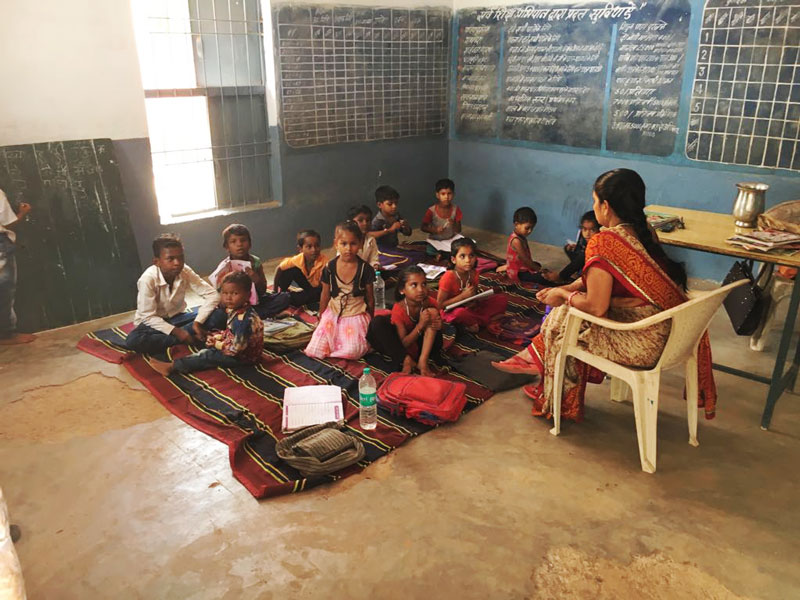Despite many appeals and written complaints to set right their pathetic conditions, the government primary and middle schools did not get any favourable response from the State Education authorities. Rotary Club of Gwalior Imperial, D 3053, has totally revamped two government schools — a primary and a middle school — adjoining each other at Sirol in Gwalior. The dilapidated building has got a fresh coat of paint and a new boundary wall to give a new lease of life to the school.

The club carried out this project, armed with the experience of converting two similar schools at Naka Chandravadni, an area nearby, into Happy Schools last year. “We finished the entire project in six months fulfilling all the basic needs of the faculty and the requirements of the students. They are very much happy now with a set of new furniture, blackboards and revamped classrooms,” says Amit Rathi, Club President.

Since the schools were on the main road, the lack of a boundary wall was one of the main problems for the school authorities. “With a common wall for both the schools, we have ensured the safety of the students. Eight classrooms were given a makeover with tiled flooring and the walls getting a ‘theme paint’ to inspire the children. Pin boards, LED tube lights and dustbins were provided to create the right environment for learning,” he says.
Focus on hygiene
One of the highlights of this project is the re-laying of underground sewer lines and renovating the four toilet blocks. “We have plugged the leakage which was not only an eyesore but totally unhygienic, and now sanitation prevails on the campus. Sanitary napkins are being distributed on a regular basis to ensure menstrual hygiene.”
The club has spent ₹6 lakh to completely revamp the twin schools in Sirol and the funds were mobilised through donations by members. “We also used $1,000 from our DDF for donating furniture such as benches and desks,” says Rathi. The school renovation will benefit 250 students who now have a clean campus and neatly furnished classrooms which will make learning an exciting experience, adds Rambabu Singh Rana, headmaster, Government Primary School, Sirol.
Recalling his frustration over his inability to get the school building renovated, he says, “All our efforts to seek government help to restructure the school fell on deaf ears. But this Rotary club intervened and in six months, brought a complete transformation.”
The club is now engaged in creating a play area and garden for the children.
Follow-up action
The club has also donated a water tank and got power supply on a permanent basis for the schools at Naka Chandravadni this year to complete what they had taken up last year. “Two ceiling fans in each classroom and a well stocked library were added to the list of facilities we had given to them,” says Rathi. A water pump with a pipeline for round-the-clock supply of water in toilets has been installed. The club has spent about ₹6 lakh to create these Happy Schools at Naka Chandravadni for about 275 students.
Blood testing machines
Based on a survey conducted to understand the needs of the community, the club has donated two hematology analysers to government hospitals — Civil Hospital, Morar; and a Blood Bank attached to the G R Medical College and J R Group of Hospitals — at a cost of ₹9 lakh, to serve underprivileged patients.
“The 5-part blood cell counter at the Civil Hospital will serve about 20,000 patients a month; while the 3-part blood cell counter at the blood bank will help 20,000 donors. These facilities include separating and using blood components.”
Rathi adds that with the lab reports having the club’s name on the top, this will enhance Rotary’s public image in the community.
The club was recognised by DG Rajkumar Bhutoria for recording 24 per cent growth in membership which stood at 156, up from 126 last year and “the club prides itself in couples membership,” points out the club president.






